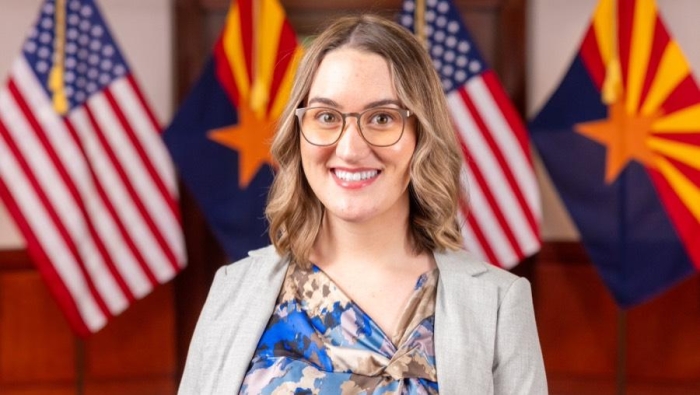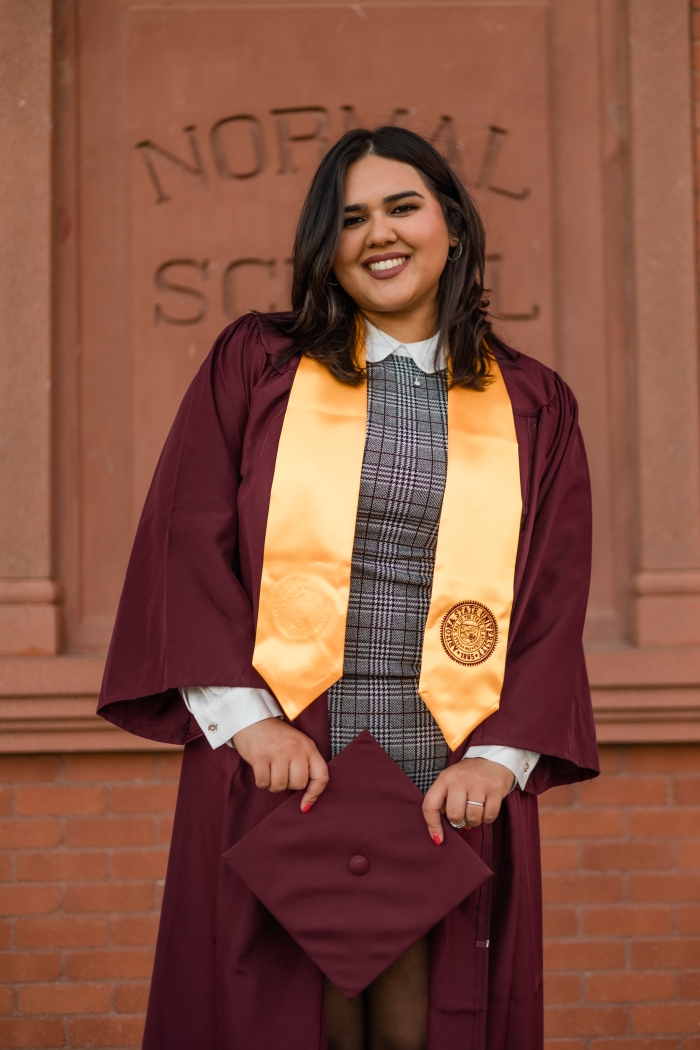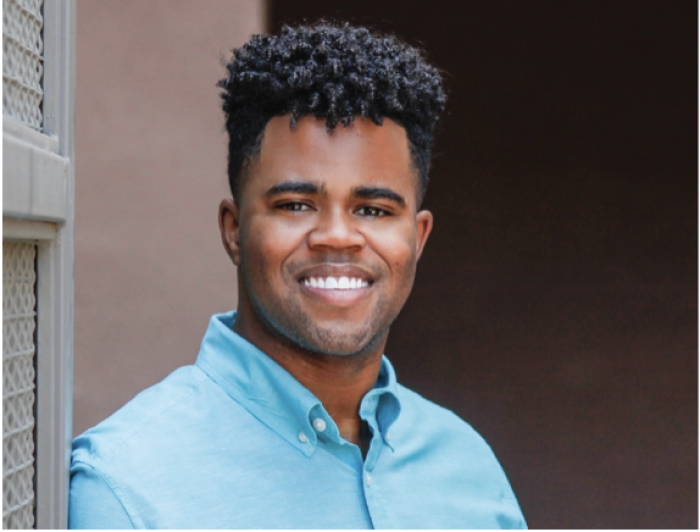What do a venture capitalist, a policy advisor and an insurance authorization specialist have in common?

Stock image
A venture capitalist. A policy advisor for Arizona Gov. Katie Hobbs. An insurance specialist for an orthopedic practice.
None of these careers is generally associated with the humanities field, but as Humanities Week kicks off Monday, Oct. 21, with The College of Liberal Arts and Sciences at Arizona State University, three ASU alumni now ensconced in those careers understand a fundamental truth:
Humanities training is a foundation that pays off in a wide variety of professions.
“It’s funny,” said Jeffrey Cohen, the dean of humanities for The College. “These days students think that if they get a certain degree, they’ll get a job. The heavens will open, and it will all work out. In fact, though, most students have to prepare themselves for a job market they don’t even know. Meaning that many of the jobs of tomorrow are about to come on the horizon.
“So, what you really want is a wide training that prepares you for whatever job comes down the line.”
Cohen said studies show people should plan on having between eight and 12 different jobs in their lifetime, thus further necessitating a broad-based education.
“So, really the question to ask is what kind of training can make it so that I’m capable of going from job to job?” he said. “And I think humanities are really well situated to enable anyone to get the skills they need for a shifting career landscape.”
ASU News talked with three former students to see how their humanities-based education helps them in their current jobs.
Hannah Johnson, policy advisor for Gov. Katie Hobbs
Johnson graduated in 2021 with degrees in philosophy and political science. She planned on becoming a lawyer, but an internship at the Arizona Legislature convinced her she could pursue a career in policy/legal work without going to law school.
The political science degree is helpful in her current role, Johnson said, but she finds herself relying heavily on her philosophy training when she’s preparing materials for Hobbs and her chief of staff.
“I would say I use my philosophy degree every single day in just about every single thing that I do,” she said. “I write briefing documents. I read really dense materials and condense them down into something that’s edible.
“What my philosophy degree focused on and taught me was how to dive into heavy, complex things and not just regurgitate them or parrot them back to somebody, but actually understand it enough to be able to condense them down, almost like a microwave, and then present it like that.”
Johnson said her philosophy courses — and particularly a legal ethics class — also helped her learn how to justify positions, a skill critical in her role as a policy advisor.
“It was so incredible because it was essentially arguments of modern issues like the death penalty, or whether we should be financially helping people eat in other countries. We had to come to class and duke it out and argue about those issues,” Johnson said.
“I remember that class so vividly because it helped me create consistency in belief systems. And that helps me when I am helping the governor come to a conclusion on something.”
She said she would urge every student to take a philosophy class or some type of humanities training.
“Every single humanities course I took created this foundation of somebody who is a thoughtful person and is able to think critically,” Johnson said. “I think that’s a large part of any humanities degree.”
Lilliana Gonzalez, insurance authorization for orthopedic practice
How does humanities training help with insurance authorizations?
Gonzalez, who graduated in 2022 with degrees in history and justice studies, said there’s more of a connection than one might think.
“When you go to college and you take these humanities courses, it really does train your brain to ... have the stamina to read, especially really boring, dry work, like insurance policies,” Gonzalez said. “It also trains your brain to ask a lot of questions that maybe other people don’t. I think it molds your brain to have a really good foundation to transfer to whatever field you’d like, whether that would be medical, law, education and so forth.”
Part of ASU’s humanities curriculum is helping students develop compassion and empathy for others in need.
That’s a critical part of Gonzalez’s job.
“We have a lot of elderly patients who might not have the time to research insurance options, or maybe they don’t have the support system to help them,” Gonzalez said. “Sometimes, you just have to take it upon yourself to help them in those areas. You have to think about all the ins and outs and what you can do to maximize the most help for a patient.”
Shortly after beginning her career in the orthopedic practice and encountering what she called “medical bias” toward certain patients, Gonzalez thought back to a course in her justice studies program. She couldn’t recall the name of the course, but she does know how it prepared her for her career.
“I remember just relating the two, what I was seeing in my job to what I was learning in class,” she said. “Just seeing it in real life and to connect those two things was a mind-blowing moment for me.”
Phillip Pipkins, venture capitalist
Here is the website description of Auteur, the venture firm that Pipkins — a 2012 ASU graduate with a degree in English literature and a minor in film and media studies — is a partner in:
“Auteur is a venture firm based in Arizona that partners with founders, inventors, corporations and investors to create market-ready, best-in-class products.”
Hardly sounds like the career a humanities student would pursue — or excel in.
But Pipkins, who initially was in the marketing field before a series of moves led him to become a venture capitalist, said he has succeeded in part because his humanities training at ASU allows him to do something most financial professionals can’t: Tell a story.
“So, I could go into a room with about 100 founders and venture capitalists, and I personally believe I could out-storytell them,” Pipkins said. “And what are you doing as a founder or venture capitalist? You’re making a pitch.
“That stuff comes second nature to me now. And that’s not second nature to a lot of these guys that are either Excel-based human beings or math-based human beings.”
Pipkins said that in his field, everyone has numbers and data. But when he’s making a pitch, it’s his ability to tell a story — his “magic power” — that is the hook to lure investors in. He also uses his storytelling ability to help companies that want an investment from Auteur.
“Most of the companies that I meet, by the time I’m done talking to them after 30 minutes, either the pitch was good and I’m like, ‘OK, cool, here’s how you can hone it,’ or it’s ‘maybe you should see the pitch in this way,’” he said. “Because I’m talking to them as if I was them trying to impress me.”
Pipkins said that without the humanities training he received at ASU, he would be a “different version of myself.”
“And that version usually gets siloed into like, ‘I’m more of a finance person, and because I’m a finance person, I’m more Excel-driven,’” he said. “And then I don’t know how to storytell. The way I look at the world would be more from a black-or-white perspective.
“But humanities forces you to look at everything gray, and it’s a gray world.”
If it wasn’t for his humanities work at ASU, Pipkins said, “I don’t think I could possibly be where I am at today. I would probably be some sort of finance bro in a mid-level position versus being my own person and very confident in going up against anyone who has a finance background.”
More Arts, humanities and education

ASU professor’s award-winning book allows her to launch scholarship for children of female shrimp traders in Mexico
When Arizona State University Associate Professor Maria Cruz-Torres set out to conduct the fieldwork for her third book, "Pink Gold," more than 16 years ago, she didn’t count on having major surgery…

Herberger Institute Professor Liz Lerman to be honored as Dance Magazine Award winner
Dance Magazine has announced that Arizona State University Herberger Institute Professor Liz Lerman will be honored as a Dance Magazine Award winner at a ceremony Dec. 2 in New York City.“I…
AI literacy course prepares ASU students to set cultural norms for new technology
As the use of artificial intelligence spreads rapidly to every discipline at Arizona State University, it’s essential for students to understand how to ethically wield this powerful technology.Lance…


